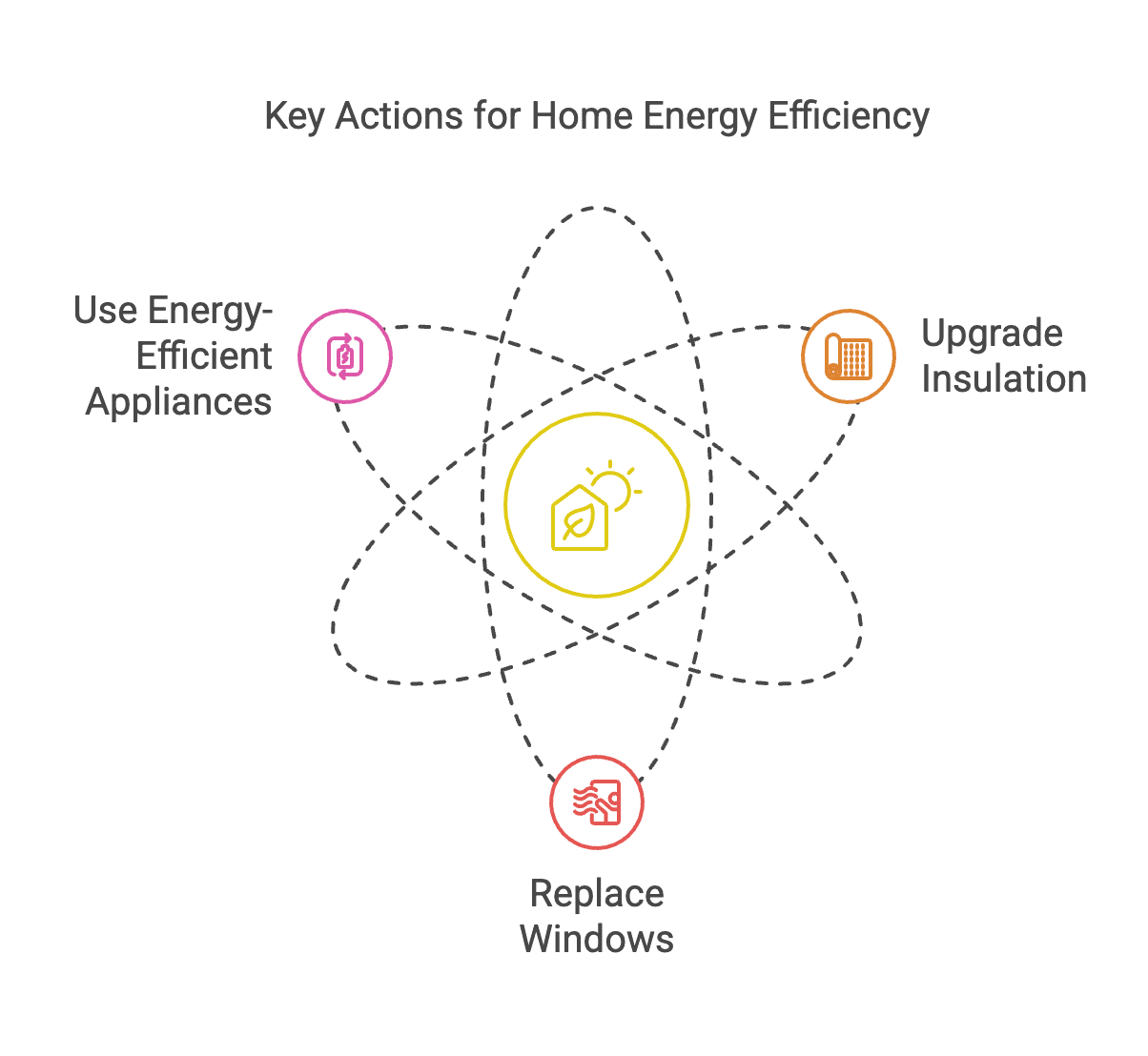With the recent surge in federal incentives for residential solar installations making headlines, more homeowners are turning to solar panels to cut energy costs and enhance their property’s value. By assessing your home’s capacity for solar energy, selecting the most suitable system, improving overall energy efficiency, utilizing available financial incentives, optimizing panel placement and maintenance, and highlighting these green features to potential buyers, you can effectively increase your home’s market appeal and worth. This guide provides practical, approachable strategies to help you maximize the benefits of solar energy, ensuring a smart and sustainable investment in your property’s future.
Evaluate Your Home’s Solar Readiness
Experts at Sun Valley Solar emphasize that before exploring solar energy, it’s essential to determine your home’s solar readiness. Start by assessing your roof’s orientation and sun exposure. South-facing roofs typically capture the most sunlight, enhancing the efficiency of your solar panels.
Additionally, consider your energy consumption patterns. Understanding how much power your household uses can help you select solar system size. Engaging with a solar consultant for a comprehensive energy audit can provide valuable insights. In Florida, a family worked with a solar expert to tailor their system precisely to their needs, resulting in significant cost savings and a noticeable boost in their home’s market appeal.
Determining Your Home’s Suitability for Solar Panels
Before exploring solar energy, it is crucial to evaluate whether your home is a good fit for solar panel installation. Roof orientation plays a significant role—south-facing roofs typically capture the most sunlight, maximizing energy production. Additionally, ensure your roof isn’t burdened by excessive shading from trees or nearby structures, which can drastically reduce efficiency. Local climate conditions also matter; areas with ample sunlight year-round are ideal for harnessing solar power effectively.
A solar calculator can provide an initial estimate of energy savings and system requirements to give you a clear picture of your home’s potential. These tools consider geographic location, roof size, and typical energy usage. However, consulting with a solar energy professional is highly recommended for a more accurate assessment.
Choosing the Right Solar Panel System and Maximizing Home Energy Efficiency
Selecting the perfect solar panel system is crucial when boosting your home’s value. Grid-tied systems are popular for their ability to connect directly to the utility grid, allowing you to sell excess energy back and reduce electricity bills. On the flip side, off-grid systems offer complete energy independence, ideal for remote locations where connecting to the grid is impractical. If you’re torn between the two, a hybrid system might be your best bet, blending both benefits to provide flexibility and reliability.
Choosing the right system depends on your home needs and budget. Grid-tied systems are often the go-to choice for urban homeowners with access to the grid and a desire to minimize upfront costs. Meanwhile, those seeking autonomy and willing to invest more upfront might opt for off-grid solutions. Hybrid systems cater to a broader range of scenarios, making them a versatile option for many households.
Before installation, it’s essential to maximize your home’s energy efficiency. Simple upgrades like improving insulation, switching to LED lighting, and using energy-efficient appliances can significantly reduce energy consumption. By lowering your energy demand, you can optimize the performance of your solar panel system, ensuring you get the most bang for your buck while increasing your home’s market appeal.
Enhancing Home Energy Efficiency and Navigating Incentives for Solar Panel Installation
Before investing in solar panels, focusing on home energy efficiency is crucial. Improving energy efficiency reduces overall energy consumption and maximizes your solar investment’s effectiveness. Here are key actions you can take:
- Upgrade Insulation: Proper insulation in your walls and attic helps maintain indoor temperatures, reducing the need for heating and cooling.
- Replace Windows: Energy-efficient windows minimize heat loss during winter and keep your home cooler in the summer.
- Use Energy-Efficient Appliances: Switching to appliances with high energy ratings can significantly lower your electricity usage.
In addition to enhancing energy efficiency, understanding and accessing available incentives and financing options can make installing solar panels more affordable. Here’s how you can navigate these opportunities:
- Research Government Rebates: Many local and federal programs offer rebates for solar installations, which can reduce your upfront costs.
- Explore Tax Credits: Tax incentives can provide substantial savings, often covering a percentage of your solar system expenses.
- Consider Financing Plans: Options like solar loans or leases allow you to spread the cost over time, making the transition smoother.
Unlocking Solar Savings: Government Incentives and Smart Installation Tips
Boosting your home value with solar panels isn’t just about slapping some panels on your roof. To maximize benefits, you must take advantage of government incentives and ensure your system is optimally placed and maintained. Here’s how to navigate the financial perks and installation secrets to maximize your solar investment.
Government Incentives and Financing Options: The government offers a variety of tax credits and incentive programs to reduce the upfront costs of solar panel installation. Popular programs include the Federal Investment Tax Credit (ITC), which allows you to deduct a significant percentage of your installation costs from your federal taxes. Additionally, many states have rebate programs and solar grants that can lower expenses. To apply for these benefits:
- Research federal and state-specific programs to understand eligibility requirements.
- Consult a certified solar installer who can guide you through the application process.
- Keep all your receipts and documentation organized to streamline tax filings.
By leveraging these financial tools, you can significantly reduce the initial investment required for solar panels.
Optimizing Placement and Maintenance: Even the best incentives won’t pay off if your solar panels aren’t positioned correctly. Proper placement ensures maximum sunlight exposure by avoiding shadows from trees or buildings. Here are some tips to optimize your setup:
- Conduct a solar site assessment to determine your panels’ best angle and orientation.
- Invest in quality panel mounting systems that allow for flexibility and durability.
- Regularly clean and inspect your panels to maintain efficiency and extend their lifespan.
Maintaining your solar system preserves its performance and enhances your home’s overall value by showcasing a well-maintained energy-efficient feature.
Maximizing Solar Panel Efficiency and Enhancing Home Value
Strategically positioning your solar panels is crucial for capturing maximum sunlight exposure throughout the year. Evaluate your roof’s orientation and angle to ensure panels receive optimal sunlight, especially during peak hours. Incorporating reflective surfaces or adjusting mounting systems can enhance energy absorption, increasing electricity generation and cost savings.
Regular maintenance is essential to preserve the longevity and efficiency of your solar energy system. Schedule routine cleanings to remove debris and dirt obstructing sunlight from reaching the panels. Additionally, conducting periodic inspections helps identify and address potential issues early, ensuring your system operates at its best. Proper maintenance extends the life of your solar panels and contributes to maintaining and potentially increasing your property’s market value.
Integrating advanced solar energy features into your home can significantly boost property value. Potential buyers are increasingly seeking homes with sustainable and energy-efficient solutions. Highlighting your solar installation and its benefits, such as reduced utility bills and environmental impact, makes your property more attractive in the real estate market. Investing in high-quality solar technology enhances your living experience. It provides a tangible return on investment through increased home equity.
Boost Your Home’s Market Value with Solar Energy Upgrades
Integrating solar panels and other energy-efficient features can significantly increase your home’s value. Studies show that properties with solar installations often experience a resale value boost of up to 4%, meaning thousands of dollars more when selling.
To maximize this advantage, it’s essential to showcase these energy enhancements to potential buyers effectively:
- Present detailed reports on energy savings and lower utility bills.
- Highlight any warranties or maintenance packages associated with the solar equipment.
- Emphasize the long-term environmental benefits and the reduced carbon footprint.
By strategically highlighting these solar features, you can attract eco-conscious buyers while positioning your home as a modern and cost-effective option in a competitive market.





































